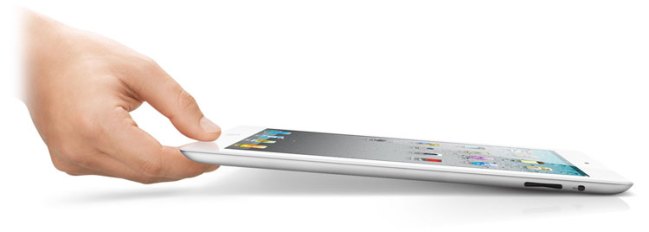 In watching Apple’s stunning — and I’m not overplaying this — launch of the iPad 2 today, I’m reminded that competing with Apple is a bitch. Particularly when the masterminds at Cupertino are on their game… and they were on their game. Even though Steve clearly isn’t as strong as he once was, he still presents circles around anybody else who attempts to do a launch. The product, as is almost always the case with Apple second-generation offerings, effectively addresses the shortcomings of the first generation. There is little doubt there will be lines around the block to purchase this one, so if you want one soon, you’d better get off your duff and order it now.
In watching Apple’s stunning — and I’m not overplaying this — launch of the iPad 2 today, I’m reminded that competing with Apple is a bitch. Particularly when the masterminds at Cupertino are on their game… and they were on their game. Even though Steve clearly isn’t as strong as he once was, he still presents circles around anybody else who attempts to do a launch. The product, as is almost always the case with Apple second-generation offerings, effectively addresses the shortcomings of the first generation. There is little doubt there will be lines around the block to purchase this one, so if you want one soon, you’d better get off your duff and order it now.
What does it mean for the tablet landscape as we know it? Here’s how a number of Apple’s key competitors are looking in the post-iPad-2 world.
Motorola’s Xoom
Motorola actually beat Apple to market with the Xoom, but it was unfinished, missing two key differentiators which would have held up during the Apple launch: LTE 4G connectivity and Flash support. It now appears that while Flash will be a software upgrade, LTE will require the device to be returned, and folks will avoid purchasing a device that has something like this in its future. Motorola did a good job of marketing and naming, but still didn’t execute at Apple levels. With both of the company’s key advantages missing for its first confrontation with the iPad 2, it may be a day late and a dollar short now.

HP’s TouchPad
You really appreciate Apple’s presentation style when you look at other vendor events. A few weeks ago, HP (and I could likely put any vendor name in here) had an event to launch its TouchPad. Before the event was even over, bloggers were wishing for sharks to eat the presenters. It was like the executives sucked any excitement out of the room. While the product was very competitive beside the new iPad, and had unique differentiators, it really never had a chance due largely to the execution around it. If HP wants even marginal success now, it will have to dramatically up its game, and it may have already crippled its chances critically.

It often seems like companies that compete with Apple self-destruct. Rumblings at the Game Developers Conference this week had me wondering if Google was actively trying to kill Android. Developers were upset that Google was so hard to work with, changed direction often, and that they weren’t making any money off their games. It appears that the average on Apple’s store is around $5K, and on Android it’s closer to $500 for small independents. At RSA last week, there was a huge amount of discussion on how malware is being introduced into the Google store, and this week on how a large number of infected applications were found and removed. Google also managed to lose a ton of Gmail messages this week, which is one of the most competitive applications on Android. Google is quickly becoming untrusted, and seems to be meandering down a list of Microsoft mistakes, having confused it for some kind of to-do list. Google remains the most likely firm to take the fight to Apple this year, but if it can’t stop tripping over its own feet, the battle will never be joined.
Microsoft to the rescue?!
The iPad, if it isn’t already, is becoming a PC. That means that rather than occupying better than 90 percent of a small new market, it eventually will need to address the bigger one. Even so, it has effectively jumped from 0 to pass the Mac’s market share with a first-generation product, suggesting it can give Microsoft a run for the money. Microsoft really hasn’t yet entered this fight yet, and were it to perform as it did when it launched Windows 95 (the only product that got Apple-level raves initially), the company could make this a fight. But unless Microsoft learns from Apple more than these other competitors have, it may be as surprised as it was in the browser market. And Apple is vastly more powerful than Mozilla was.
In the end, Apple knocked another one out of the park today. For a lot of competitors, their sparkling new products just went into the same dump that all of the iPod competitors ended up in. At some point, someone will likely emerge to compete effectively with Apple, we just clearly aren’t at that point this week, and I doubt we will get there this year.
Editors' Recommendations
- The best tablets in 2024: top 11 tablets you can buy now
- The best iPads in 2024: the 5 best ones you should buy
- The most common iPad problems and how to fix them
- Best iPad deals: Save on iPad Air, iPad Pro, iPad Mini for the New Year
- Apple accidentally revealed a big iPad Pro display upgrade


